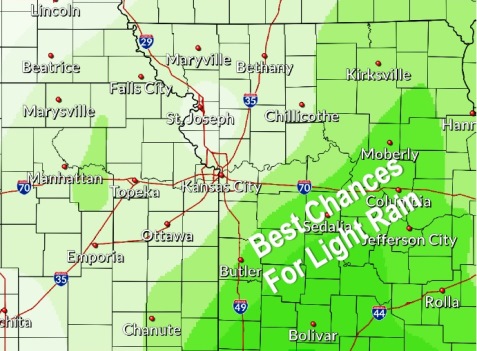by Madeline Fox, Kansas News Service
Studies show even children raised by parents with money problems or substance abuse tend to fare better than those routed through a chronically troubled foster care system.
So the federal government wants states to invest more heavily in keeping troubled families safely together.
Washington has promised to match every dollar a state spends on certain family preservation programs. The Kansas Department for Children and Families is suggesting $3.9 million, less than 1 percent of its yearly budget.
Now a coalition of child welfare groups, including some companies whose businesses turn on state contracts, wants nearly a 10-fold increase in that investment.
A group of 25 child welfare and mental health organizations released a letter Monday asking Kansas to spend $30 million on foster care prevention programs.
Under the Families First Prevention Services Act, a federal law passed in February, states can get a dollar-for-dollar match of federal funds for certain evidence-based programs aimed at diverting kids from the foster care system.
Both child advocates and the state welfare agency have talked about the potential of the federal match to boost efforts to keep kids out of state custody. That comes as Kansas’ foster care population has skyrocketed by more than 40 percent since 2012.
The advocacy groups drafted a letter signed by 25 agencies, ranging from Kansas Head Start to three of the five agencies chosen to manage foster care and family preservation for the state next year.
The letter said Kansas spends 3 percent of its state and local child welfare dollars on prevention, compared to a national average of 17 percent. Those numbers came from the nonprofit research organization Child Trends, which was looking at 2014 spending.
In Kansas, 17 percent would be about $25 million. The letter says “‘average’ is nowhere near good enough.”
“Evidence-based programming is wildly successful … but it’s not cheap,” said Christie Appelhanz, who heads the Children’s Alliance representing the non-governmental agencies managing foster care in Kansas. “The amount that the state is requesting just won’t go far enough to meet the needs we have in Kansas.”
DCF spokeswoman Taylor Forrest said in an email that the agency only anticipates needing $3 million for evidence-based prevention programming and $73,000 for substance abuse programs next year, the first year states can draw down the federal match money. Forrest said that amount is based on the programs already active in Kansas that meet the law’s guidelines.
The federal government pointed state agencies toward the California Evidence-Based Clearinghouse for Child Welfare for a list of programs that could use Families First match money. Forrest said Kansas is considering putting those dollars toward Healthy Families, a home-visit program that appears in the clearinghouse.
Healthy Families already spends $6 million to support its current efforts, which serve about 370 children in 22 counties.
In the letter pushing for $30 million, the signees identified 11 programs already operating in the state where they suggest Kansas put more money, including Healthy Families and nine others listed in the California Clearinghouse.
Dona Booe heads the Kansas Children’s Service League, which helps administer Healthy Families. She said DCF should cast a wider net in supporting foster-care prevention programs in the first year of Families First — and put more dollars behind them.
“The supports that are recommended in this letter really are the core group of services for issues that place children at the greatest risk,” she said.
Forrest said the Families First Act is not meant to fill every gap in the state’s social service programs, but it is intended to “support and intervene with a definitive population of families” — those deemed at-risk for entering the foster care system.
Although many advocates find Kansas’ budget request lackluster, the state is still ahead of the curve in taking advantage of the federal law. Forrest said Kansas is one of only three states actively pursuing Families First funding in the first year. That’s partly because Kansas keeps only a small percentage of its foster children — about 8 percent — in group homes, a requirement under the new law.
Forrest said DCF anticipates spending its first year with Families First funding getting programs off the ground. She said DCF could potentially ask for more state money in 2020 and 2021 if the agency feels it’s needed — or based on feedback from the federal government about how it’s implementing Families First programs in Kansas.
She said Kansas has other high-priority budget items in its budget request for the next several years, including $50 million to update the agency’s out-of-date information system that tracks children and families who have come to DCF’s attention.
“There are several other facets of the child welfare system, for example, the Child Welfare Information System, that will require substantial funding,” she said.
Anne Heiligenstein, a consultant with national child welfare nonprofit Casey Family Programs, said in an interview last month that DCF’s $3 million ask for 2019 could be prudent.
“No state in the first year is going to come right out of the box spending at full bore,” she said. “It takes time for services to gear up, to identify the populations you’re going to serve.”
Appelhanz said investing money now will pay dividends down the road.
“This is a once-in-a-generation opportunity,” she said. “If we’re willing to invest on the front end, we will save this money in the future by decreasing the number of kids who come into the foster care system.”
Madeline Fox is a reporter for the Kansas News Service, a collaboration of KCUR, Kansas Public Radio, KMUW and High Plains Public Radio covering health, education and politics. You can reach her on Twitter @maddycfox.
Kansas News Service stories and photos may be republished at no cost with proper attribution and a link to ksnewsservice.org.
See more at https://www.kcur.org/post/child-welfare-groups-want-kansas-spend-30-million-keep-kids-out-foster-care

